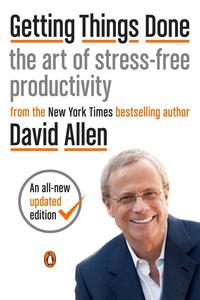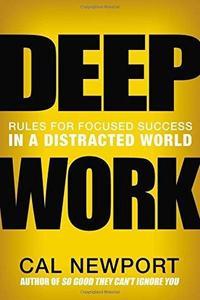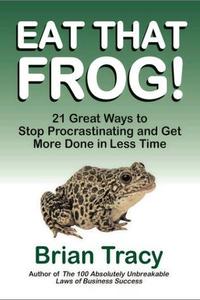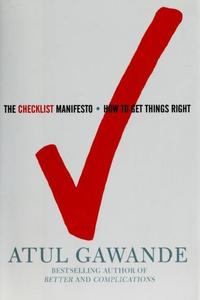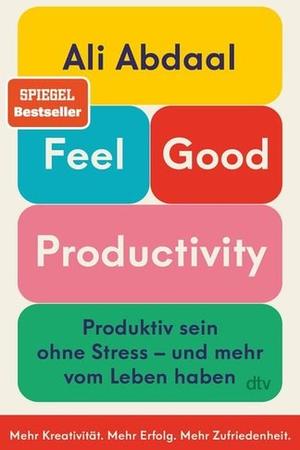
Feel-Good Productivity by Ali Abdaal: Summary & Notes
by Ali Abdaal
In One Sentence
Sustainable productivity comes from feeling good while working—energize yourself through play, power, and people rather than forcing yourself through guilt and pressure.
Key Takeaways
- Productivity should feel good, not painful
- Play: bring curiosity and fun to work
- Power: take control and own your work
- People: connect with others and leverage community
- Unblock yourself: overcome fear, doubt, and inertia
- Sustain yourself: prevent burnout through rest and alignment
Summary
A fresh take on how to be more productive in your life, without having to sacrifice anything or feel terrible.
Abdaal provides a fun combination of science and personal anecdotes, along with lots of concrete suggestions in the form of experiments that can help you live a more aligned, productive life.
Even those who consider themselves well-versed in productivity (like I do) will find something useful in this book.
Who Should Read This Book
- Anyone who struggles with productivity guilt
- People who have burned out from hustling
- Those who want sustainable work habits
- Fans of Ali Abdaal's YouTube channel
FAQ
What is feel-good productivity?
It's Ali Abdaal's framework: productivity sustained by positive emotions rather than discipline alone. It has three energizers (Play, Power, People), three unblockers (fear, doubt, inertia), and three sustainers (rest, recharge, realign).
📖 Chapter-by-Chapter Breakdown
Click to expand the full detailed notes for every chapter →
📖 Chapter-by-Chapter Breakdown
Click to expand the full detailed notes for every chapter →
Notes
- Feeling good boosts our creativity and energy, and reduces our stress.
- Approach your work as play. Ask yourself: what would this look like if it were fun?
- Reframe failure. It’s not a failure, it’s an experiment that tells you to try something new.
- Strive to feel empowered in your job and life. Ask yourself: what would it look like if I were really confident at this?
- Try to imagine yourself teaching what you’re working on to others. Take ownership of the process, even if you can’t own the situation.
- Use positive self-talk, and reframe situations using phrases like “I’m blessed to do this.”
- Find people who naturally uplift your energy, and try and work with others, even if you’re not working on the same thing. View them as “on your team” and treat people like they’re you’re teammates.
- Do nice things for other people, and ask other people for help. Both make them feel good.
- Overcommunicate, and be enthusiastic when celebrating others. Be candid in giving feedback as well as praise.
- Procrastination is often caused by something that’s blocking us: uncertainty, fear, and inertia.
- Overcome uncertainty by getting specific about the purpose, desired end state, and path to get there for each objective. Remind yourself why you’re doing it as often as you can.
- Change how you think about goals, and try and set process goals that are within your control, short-term, and will energize you. Set SMART goals for the future as complementary goals if you want.
- Plan what can go wrong ahead of time with a pre-mortem.
- Schedule when you’re doing to do something in your calendar, including things like “nothing time.”
- To overcome fear, be more specific about what you’re afraid of. Remind yourself of the spotlight effect, where we all think others think about us far more than they do. Remind yourself “nobody cares.”
- Ask yourself, will this matter in 10 minutes? 10 weeks? 10 years?
- Use an alter ego, like Batman, and pretend to be them. Act like you think they would. Pretending is actually a great way to get past those fears.
- To overcome inertia, make the thing you want to start on easy, the default. And make the things you want to avoid hard.
- Use the five-minute rule, committing to work on a task for just 5 minutes. Often, you’ll keep going much longer than that.
- When procrastinating, ask yourself: what’s the next step?
- Track your progress, and be encouraged by moving forward. Forgive yourself when it doesn’t happen and celebrate small victories.
- There are three types of burnout: overexertion burnouts from taking on too much work; depletion burnouts from not getting enough rest; and misalignment burnouts which come from not doing work that brings your joy or meaning.
- Take breaks when you do your work, and reduce the number of things you try to accomplish. It may seem like not enough, but it will let you be productive in the long-term.
- Use Derek Sivers’ “hell yeah, or no” filter to only say yes to the things that really excite you.
- Resist distraction by removing apps or environmental cues that tend to distract you, and when it happens, just say “begin again” to yourself and get started.
- To rest, find activities that make you CALM: Competent, Autonomous, Liberated and Mellow.
- Spend more time in nature, or at least keep more pictures of nature around you.
- Don’t feel bad about booking nights off for “nothing.”
- To better align your work and your values, ask yourself: what would I feel good about someone saying in my eulogy?
- Pick out your values, and how you might align yourself better with them. Pretend it’s 6 months from now, and you’re celebrating some changes or accomplishments with your friends. What would those be? Write them out.
- Then think about what 3 actions you could take today, that would better align yourself with your values and those celebrations.
- Treat your life as an experiment: form a hypothesis, make a change, and see what works. Keep what does, discard what doesn’t.
